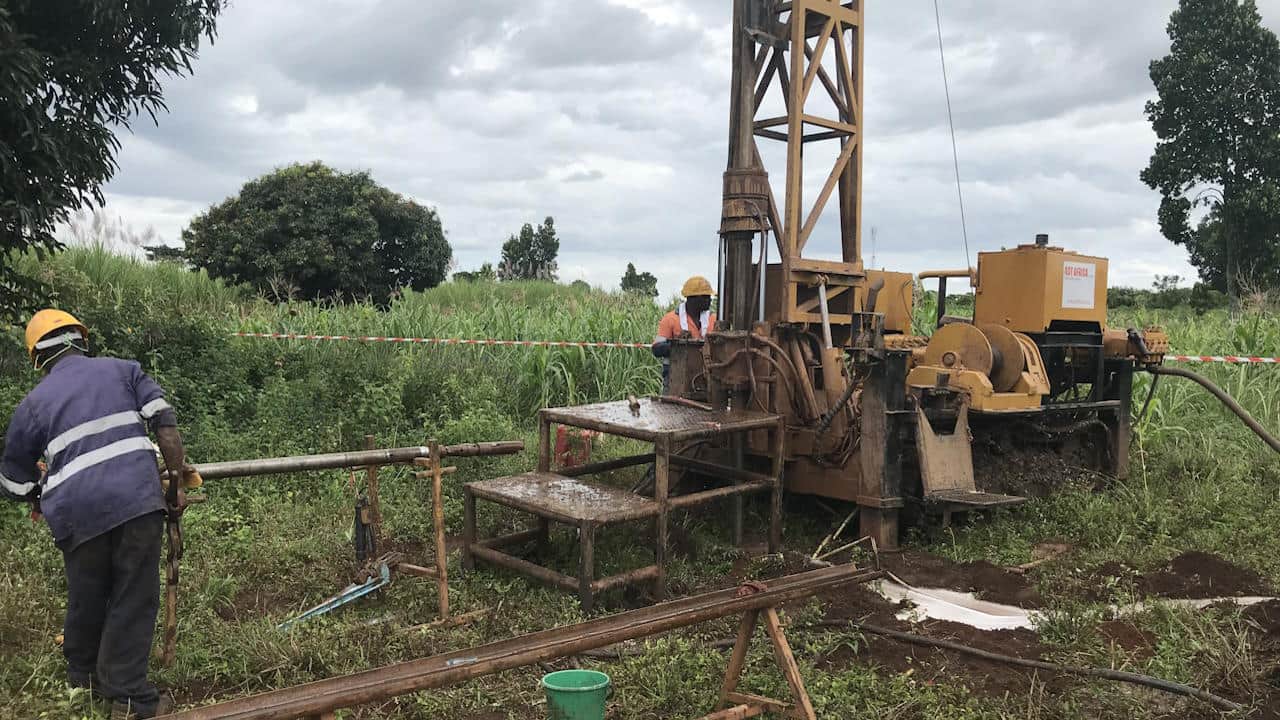
Ionic Rare Earths Limited, the Australian mining company, has acquired an additional 34 per cent interest in Rwenzori Rare Metals Limited, the owner of the Makuutu Rare Earths Project, bringing its majority interest in the project to 94 per cent as it prepares for small-scale production in a few months’ time.
The company said Monday that the transaction was a “substantial step forward” in advancing financing and pre-production reservation discussions with third parties who have shown “strong interest” in the company’s “heavy rare earth product” that will be generated once the project is developed.
The Makuutu Rare Earths Project is located approximately 40km from the regional centre of Jinja in the districts of Bugweri, Mayuge, and Bugiri (Jinja is 80km from the capital Kampala). It contains the world’s largest and most advanced ionic adsorption clay rare earth deposits.
The project consists of six licences covering approximately 298 square kilometres. Its geological formation “is similar to the ionic clay-type deposits in southern China, which are the cheapest and most accessible source of heavy rare earth oxides and are mined using rudimentary mining and processing methods.”
Ionic says that “Makuutu ticks all the boxes” in terms of “supplying high-value, critical, and heavy rare earths through a low-cost, scalable operation.” The company is building a demonstration plant at the project and expects to start producing mixed rare earth carbonate in the first quarter of 2024, which will be “sent to potential customers and off-takers for evaluation.”
On completion of the transaction, Ionic Rare Earths will issue to Rwenzori Rare Metals 425 million ordinary shares and two batches of 350 million performance shares, representing 9 per cent of its fully diluted share capital. In addition, Rwenzori Rare Metals will receive a bonus of 135 million Ionic shares if all performance milestones are achieved. Ionic Rare Earths is listed on the Australian Stock Exchange.
Tim Harrison, managing director of Ionic Rare Earths, said:
“Makuutu isn’t just any rare earth project; it’s a strategic asset, and importantly one of the most advanced ionic adsorption clay projects globally. Makuutu can unlock near term supply of heavy rare earths into the advanced manufacturing demand that far exceeds existing supply. It has immediate strategic value to these new supply chains forming.
“With a dominant 71 per cent magnet and heavy rare earth basket content, Makuutu stands tall as one of the most advanced heavy rare earth projects globally. Positioned strategically, it’s poised to fuel the emerging supply chains across Europe, the US, and Asia.
“This is an exciting time for Makuutu as we near production of first mixed rare earth carbonate from the Demonstration facility in the first quarter of 2024, and the increased ownership will enable IonicRE to advance and accelerate discussions with strategic investors, offtake partners, and financiers.”
Rare earths are a set of 17 elements commonly found in the ground, but difficult to extract and process economically outside China. They are critical to the production of more than 200 products, including high-tech consumer goods — mobile phones, hard drives, electric and hybrid vehicles, flat-screen monitors — and also have military and defence applications, for example in lasers, electronic displays, and in radar and sonar systems.
Ionic says a feasibility study of the first six licence areas — which are subject to full government approval — has defined “an initial 35-year life project producing a 71 per cent rich magnet and heavy rare earth carbonate product basket,” which could potentially be extended to other licence areas.
The company hopes to supply magnet rare earth oxide to customers in the UK and elsewhere for use in the manufacture of electric vehicles. It is also exploring plans to develop its own refinery to separate Makuutu’s “high value magnet and heavy rare earths… into the full spectrum of rare earth oxides and scandium” for use not only in electric vehicles, but also in offshore wind turbines, communications, and key defence initiatives.
The transaction is subject to regulatory approvals from the energy ministry and the South African central bank, and is expected to close in the first quarter of 2024. Rare Earth Elements Africa (Pty) Ltd, a South African company, owns the shares in Rwenzori Rare Metals that Ionic is acquiring.






